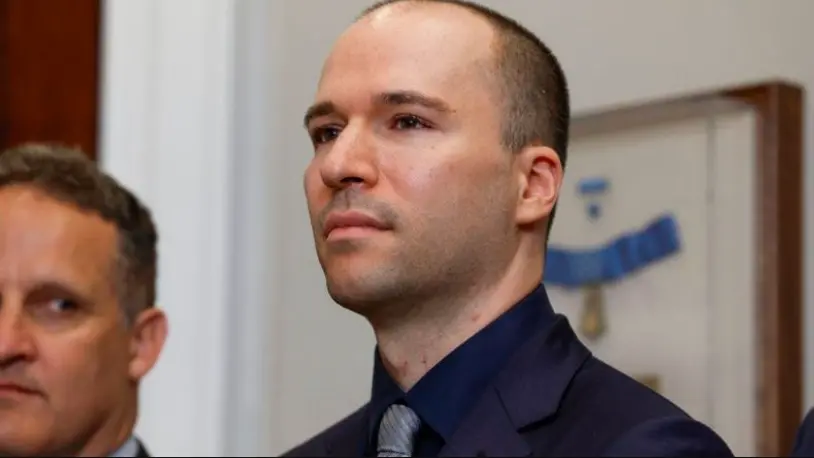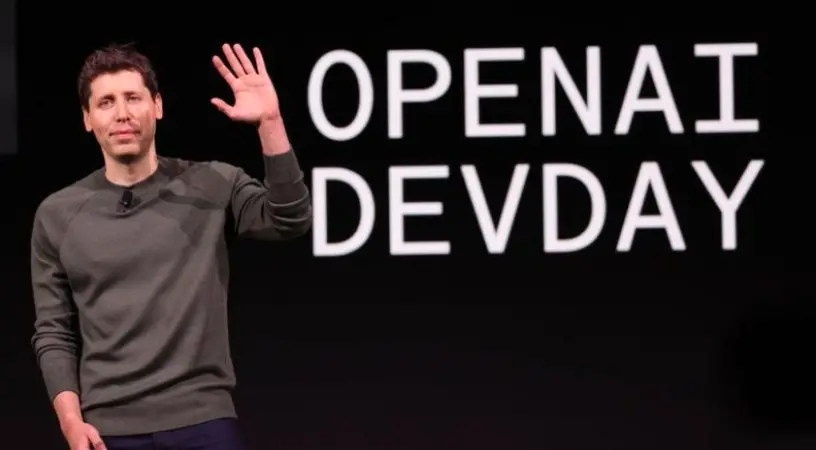AI’s Power Struggle: What’s at Stake as OpenAI’s CEO Sam Altman Faces Controversial Ouster?
Imagine a battle rages in the boardroom of a multi-billion dollar company developing a futuristic technology potentially capable of saving or destroying the world.
Its CEO, who has the backing of world leaders, is overthrown by senior managers who turn on him, prompting a backlash from the rest of the company that demands they be fired.
It’s not the script for a Netflix series, but the final days at OpenAI.
Journalists, investors and tech aficionados have been watching the events as if it were a fictional production, although opinions differ on whether it would be a thriller or a comedy.
How it started
The battle at the top of OpenAI, the company that created the artificial intelligence chatbot ChatGPT, began suddenly last Friday, when the board of directors announced the firing of co-founder and CEO Sam Altman.
In a blog post, the board accused Altman of not being “consistently candid in his communications” and claimed that he had “lost confidence” in his leadership as a result.
There are only six people on that board and two of them were Sam Altman and another co-founder, Greg Brockman, who resigned after the former was fired.
Four figures very close to Altman and the company immediately jumped into action, taking the entire tech community by surprise, including – presumably – its own investors.
Elon Musk, also a co-founder of OpenAI, wrote on X (formerly Twitter) that he was “very concerned.”
Ilya Sutskever, the company’s chief scientist, was a member of that board and wrote that he “would not take such drastic action unless he felt it absolutely necessary.”
Now Sutskever has expressed regret over the decision and is one of many signatories to an explosive letter to the board, calling for the return of Altman and Brockman and threatening to quit OpenAI if this does not happen.

OpenAI co-founder Greg Brockman also left the company
What caused the conflict?
So what set off this rapid snowball? We don’t really know yet, but a few options are being tossed around.
There are reports that Altman was considering some hardware projects, such as funding and development of an AI chip, which would be quite a different direction at OpenAI. Had he made some commitments that the board was not aware of?
Or could it come down to a very old and very human source of conflict, such as money?
In an internal memo whose contents were widely circulated, the board made it clear that it was not accusing Altman of “financial misappropriation.”
But we do know that OpenAI was founded as a nonprofit, i.e., a company that does not seek to make money. It receives enough revenue to cover its own operating costs and any excess is reinvested back into the business. Most charities are not-for-profit.
In 2019, a new branch of the company was established that did seek to make a profit. The firm laid out how the two would coexist. The nonprofit side would lead the for-profit side and there would be a cap on the returns investors could earn.
Not everyone was happy with this and it was said to be a key reason behind Elon Musk’s decision to leave the corporation.
OpenAI, however, is now in the favorable circumstance of being worth a huge amount of money.
According to reports, an employee stock sale that failed to materialize this week was valued at US$86 billion.
Could there be pressure to give more power to the for-profit side of the business?
How will this end?
OpenAI is behind artificial general intelligence (AGI). It doesn’t exist yet and is a source of concern and wonder.
It’s basically the idea that someday there will be artificial intelligence tools that can perform a range of tasks as well or better than humans (i.e. us) can today.
AGI has the potential to change the entire way we do things. Jobs, money, education… all of that goes up in the air when machines can do things. It is, or will be, an incredibly powerful phenomenon.
Is OpenAI closer to that than we think – does Altman know? In a very recent speech, he stated that what’s coming next year would make the current ChatGPT bot look like “a quirky relative.”
I think that’s less likely. Emmett Shear, OpenAI’s new interim CEO, posted on X that “the board did not remove Sam over a specific disagreement about security.”
He also announced that there will be an investigation into what happened.
But Microsoft, OpenAI’s largest investor, has decided not to risk Altman taking the technology elsewhere.
It announced that the entrepreneur will join the Seattle-based tech giant to lead a yet-to-be-formed AI research team. His co-founder Greg Brockman will join him and, judging by the number of employees who posted on X today, it looks like he’ll be taking some of OpenAI’s top talent with him as well.
Microsoft is apparently willing to match the salary of any OpenAI employee who wishes to leave the company.
Many OpenAI staff members shared the same post on X, which says, “OpenAI is nothing without its people.”
Is that a warning to Shear that he’s going to have to hire new staff? A GLM colleague standing outside OpenAI headquarters told me on Monday that 09:30 in San Francisco saw no people arriving for work.
Or, perhaps it’s simply a reminder that, despite this corporation working on a form of technology that is reshaping the world, it is at heart a very human drama?

